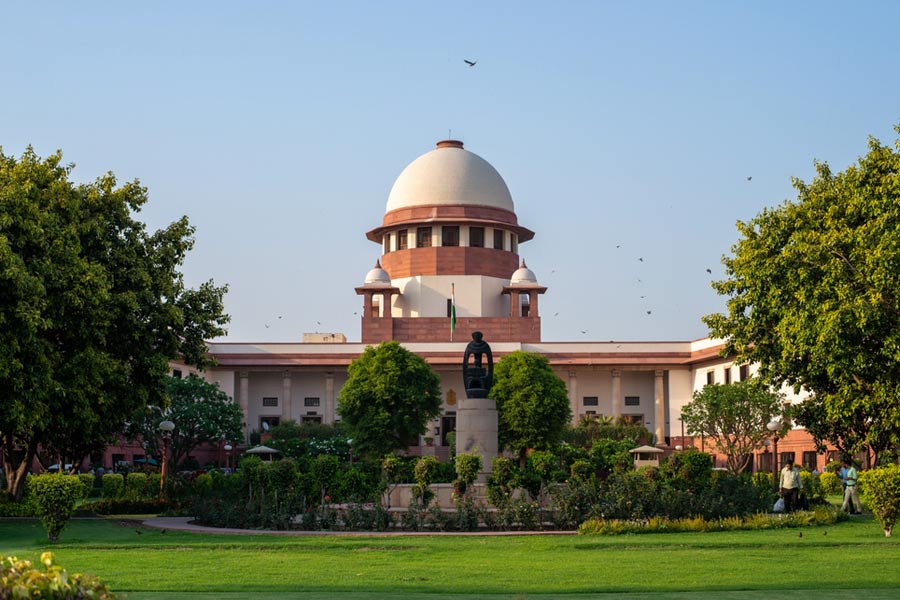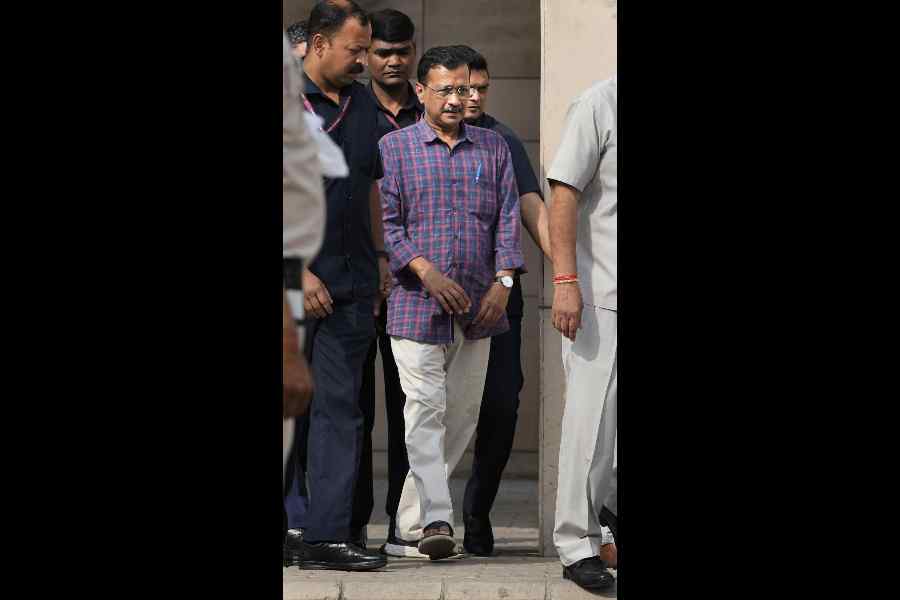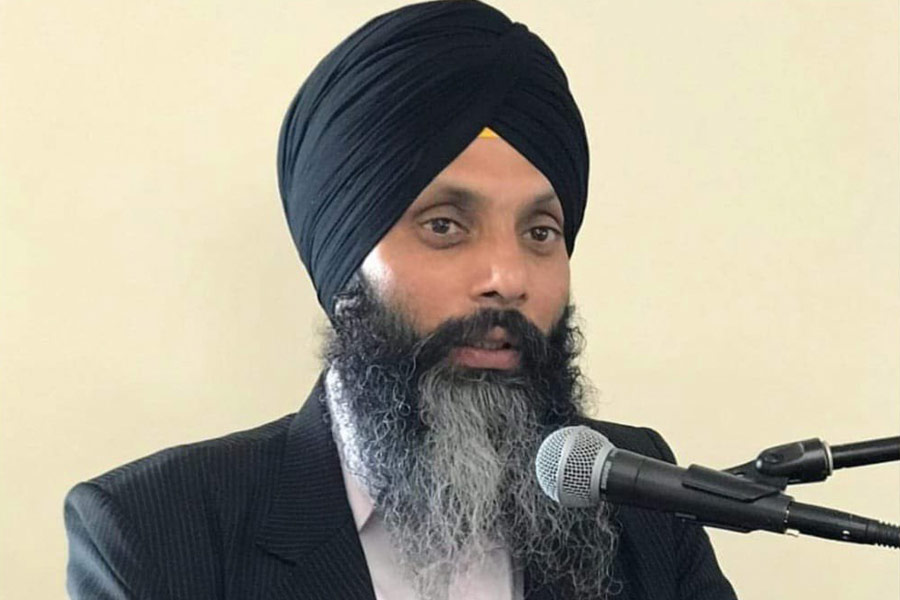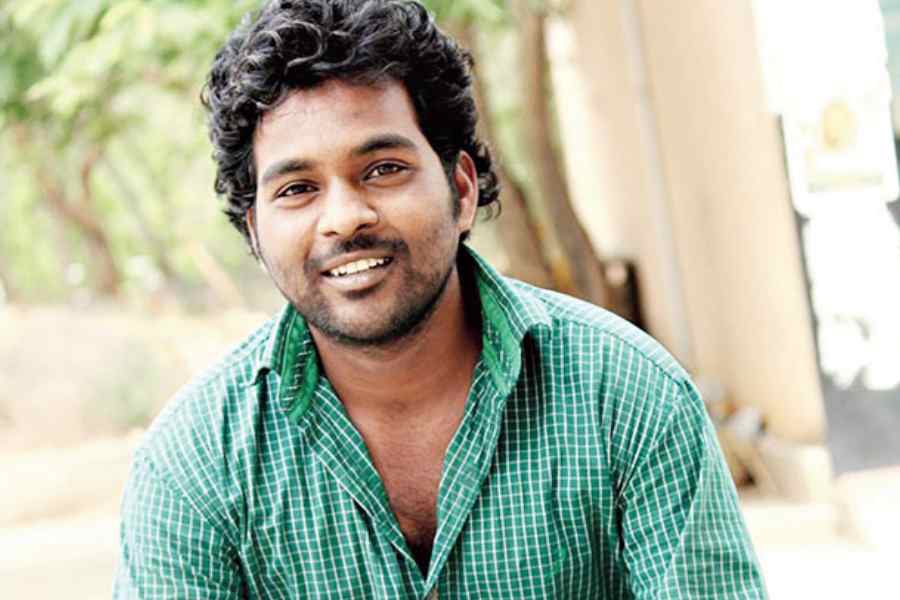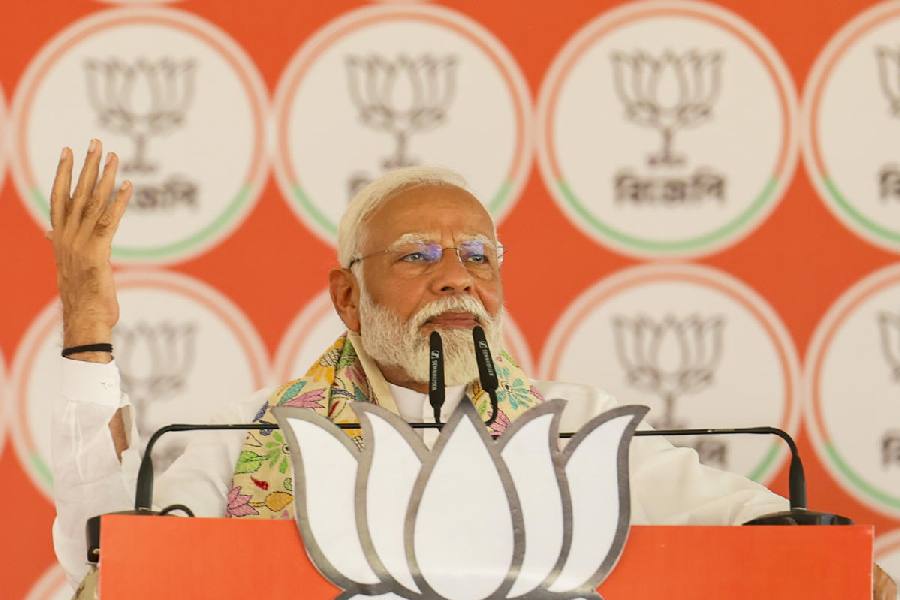The Supreme Court on Friday told the Enforcement Directorate that the agency cannot “keep people behind bars without trial” as it is “not proper”.
The court directed the release of Benoy Babu, regional manager of Pernod Ricard India, who has been in judicial custody for 13 months under the stringent Prevention of Money Laundering Act in connection with the Delhi excise scam.
When the bail plea came up for consideration, the ED sought to oppose it, but Justice Sanjiv Khanna told additional solicitor-general S.V. Raju, appearing for the agency: “You cannot have pre-trial detention indefinitely. This is not proper. We still don’t know where this will go, in the sense how many other accused are going to be brought in."
Raju justified the detention and arrest of Babu on the ground that the official was allegedly in possession of certain confidential documents relating to the Delhi excise policy even before it came into the public domain.
Delhi’s former excise minister Manish Sisodia is in jail in the same matter.
Senior advocate Harish Salve, representing Babu, said that there were contradictions in the claims made by the prosecution and that a “bogus case” had been foisted on his client. Salve told the bench that while the CBI had made Babu a prosecution witness, the ED had named him as an accused.
The oral observations of the top court assume significance against the backdrop of the ED increasingly invoking the PMLA in recent years to put people behind bars. It is difficult to obtain bail under the PMLA. Critics have also accused the central government of using the ED to target political opponents and those critical of the dispensation, a charge rejected by the Centre.
Justice Khanna is expected to take over as the next Chief Justice of India in November next year after incumbent Justice D.Y. Chandrachud demits office.
The bench of Justices Khanna and S.V.N. Bhatti said: “Mr Raju, you cannot keep somebody behind bars without trial. You know that normally trials should be concluded within two years.”
The court said it was not clear when the trial would begin as the charges had not yet been framed.
The bench noted that Babu had been in jail for over 13 months and said in a written order, an official copy of which is yet to be uploaded: “…Having regard to the aforesaid factum, including period of incarceration already suffered by the appellant, we allow the present appeal and direct that the petitioner be released on bail….”
Though Raju pleaded that the bail order should not be cited as a precedent by co-accused, the bench refused to accept the argument.
The recent arrest of Ankit Tiwari, an ED official, after he was allegedly caught accepting a bribe by the Tamil Nadu vigilance and anti-corruption wing has put the spotlight on the central agency’s credibility and the overarching powers it enjoys.
A three-judge bench of the Supreme Court is hearing a batch of petitions challenging an earlier ruling of the court that had last year upheld the sweeping seizure and search powers of the ED.

